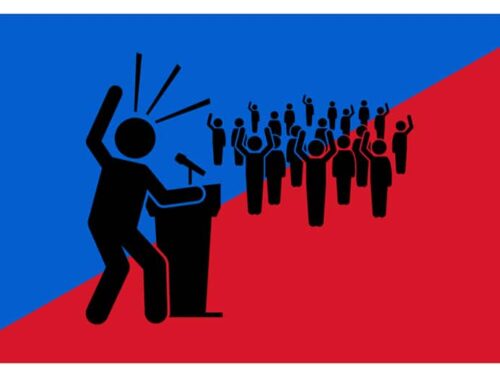
Should managers strive to provide meaningful work to their employees?
By Gerald L. Finch, PhD
Can organizations create meaningful work for their employees? The answer seems to be…not in most cases.
Our research tells us that not only is it exceedingly difficult to achieve this for most employees but focusing on meaningful work is not the optimal place to start when it comes to retaining and motivating your best and brightest. Other important endeavors are needed first before laying a foundation for meaningful work.
There are many theories about how to create meaningful work. During the 1960’s Richard Hackman and Greg Oldham attempted to outline the components, including these essential three:
- Skill Variety. Essentially, the job should require several skills be utilized, rather than doing one, monotonous task repeatedly. It assumes that employees actually want to develop a variety of skills.
- Task Identity. This means that a job has tasks within it with clear beginnings and endings. It assumes that group work, with each person doing only one component of the task, is not meaningful.
- Task Significance. This is the degree to which the job substantially impacts the lives of others within the organization and society. Each employee determines the significance. This assumes that employees want to positively impact others around them.
There have been many more attempts to define meaningful work, with one of the more recent attempts emphasizing that for work to be meaningful, it should be in support of a worthy purpose.
My research over the last 20 years has revealed that such a purpose does provide meaningful work for some employees. However, for this kind of meaning to be sustainable over extended periods, the work processes or activities also must be meaningful. With a few exceptions, a meaningful purpose alone cannot sustain meaning over lengthy periods. In other words, if you hate what you do, a noble purpose only goes so far.
I’m reminded of two of my students who were studying to be missionaries. During class, they argued that a noble purpose of serving God was sufficient for them to realize meaningful work. Years later, when one of them became a missionary, she confessed that that purpose was not enough, and that she needed to combine purpose with meaningful activities. These meaningful activities, such as teaching children in her case, provided the fuel and energy to sustain the purpose.
So, why shouldn’t organizations focus on creating and communicating a meaningful overriding purpose or mission? Because my research, counseling, and work experience indicate that that will probably not be enough. Most people need to be engaged in meaningful work activities too.
It’s also important to consider that meaningful purposes are sometimes difficult to formulate and communicate because the services and products offered by the organizations may not be considered by employees to be noble or worthy. For example, there’s a tobacco company office near my university, and several of my prior students have worked there. They’ll admit that this company lacks a noble purpose. However, many find their work activities meaningful and cite the education and employee development programs offered there as being of the highest quality. They love the work experience that allows them to grow professionally. For these students, meaningful processes and activities translate into meaningful work without a noble purpose per se.
However, on the other hand, organizational leaders face significant challenges if they focus only on creating meaningful activities. Like meaningful purposes, these activities are not sustainable. Also, many jobs cannot be designed or re-designed to be meaningful, no matter how hard one tries. Organizations need certain functions to be done, whether they are meaningful to employees or not.
To add to the complexity, meaningful activities by themselves will not be enough to motivate and retain employees. They need to feel respected as well.
For example, imagine a professional services firm, like an ad agency, has worked tirelessly to design most of its job functions to be meaningful by providing employees with wide autonomy and space for creativity. But what if the employees feel interpersonally disrespected by their bosses, or colleagues or customers? Or, will they continue to find their jobs meaningful if no one keeps them informed about what’s going on with the accounts, or if it’s revealed that the agency has unfair promotion or performance evaluation policies, or is paying women less than men for the same job? Unlikely.
So instead of focusing on building meaningful purposes and processes, what should organizations do?
The best place to begin is by creating a culture where employees feel respected. We know that without respect, employees will soon decrease their engagement, allow quality to slip, and look to transfer or leave. Further, they will find their work activities much less meaningful. And with less meaningful work activities, employees will find it much more challenging to derive meaning from purposes such as a noble mission.
All of our research leads us to the conclusion that employees who feel respected are more engaged, collaborative, and productive. This respect can be enhanced regardless of the purpose or work activities of the organization. Finally, respect itself – as we outlined it recently to include the Informational, Distributive, Procedural and Interpersonal types of respect – can provide meaning in work through fostering healthy working relationships, and a sense of dignity and belonging for everyone, regardless of level, position or task.
This means that respect, much more than meaningful work or a worthy purpose, is a more viable and productive place to start if you want to retain highly motivated, collaborative, and loyal employees and increase their sense of belonging. With respect as a foundation, organizations are finally ready and able to start cultivating meaningful work.
Gerald L. Finch, PhD Professor of Management and Psychology, Universidad San Francisco de Quito, Co-Director of The Respect Project—Latin America, and a member of the Advisory Council at The Center for Respectful Leadership.




